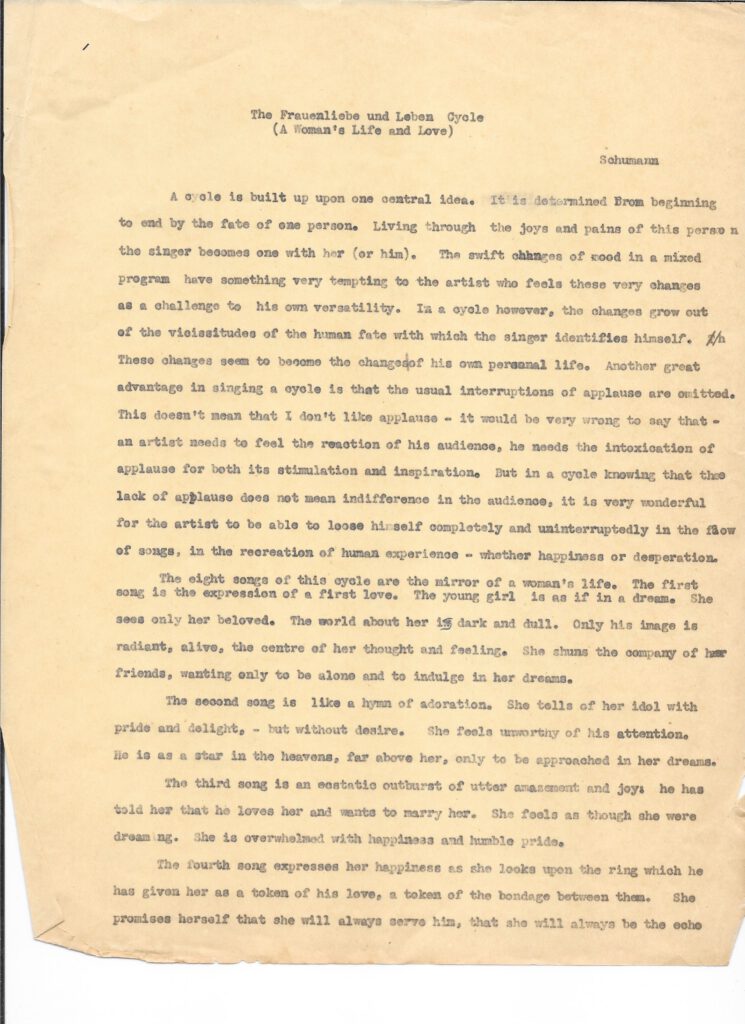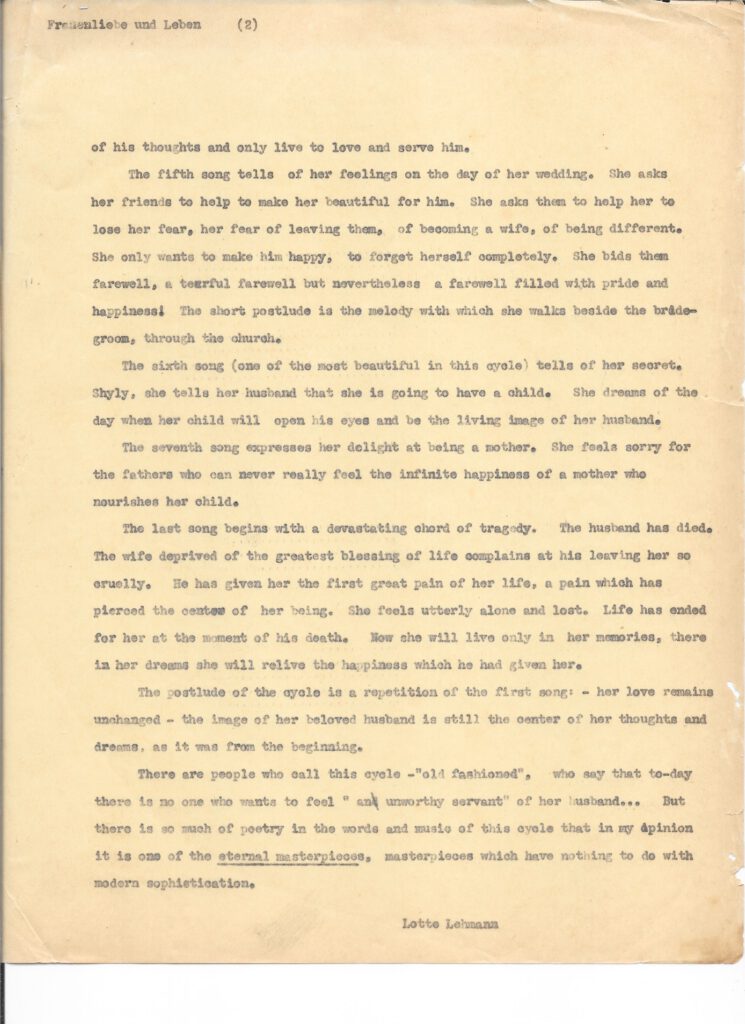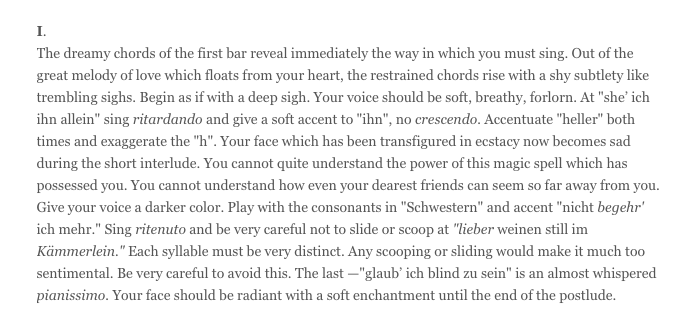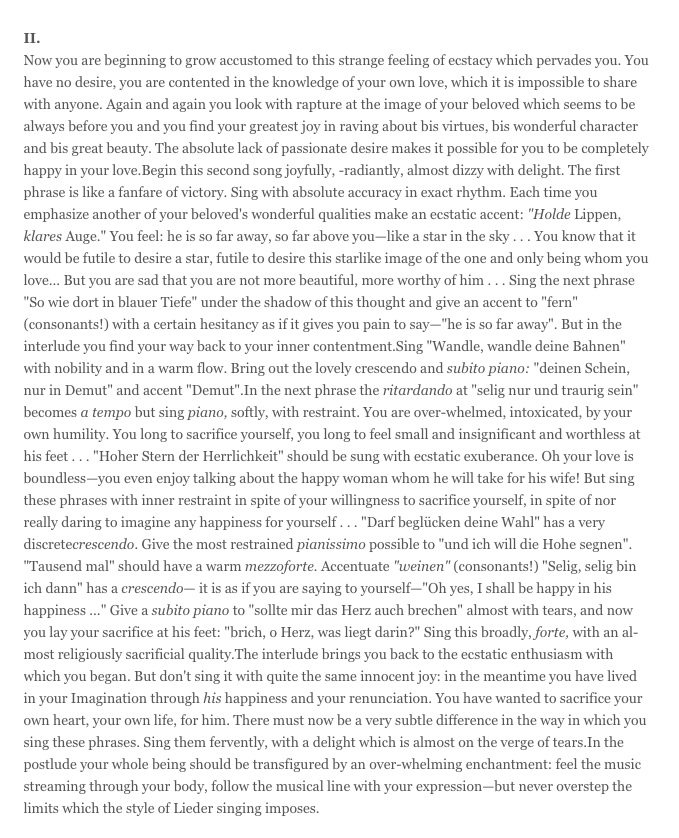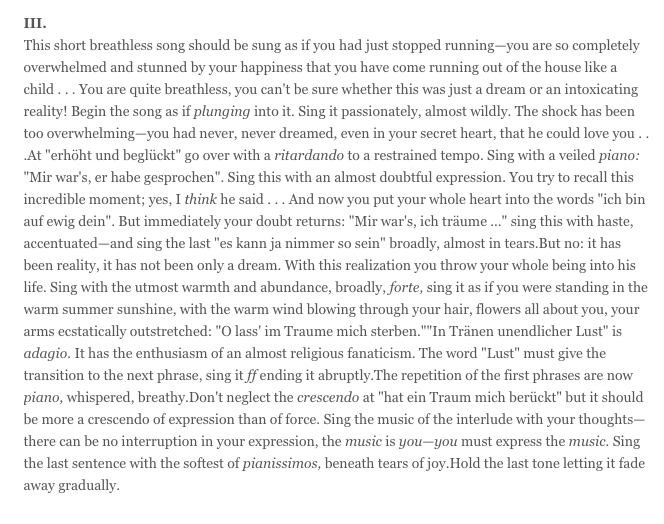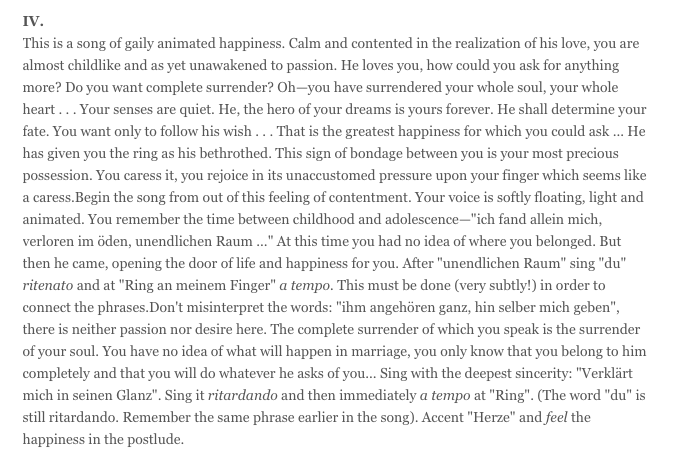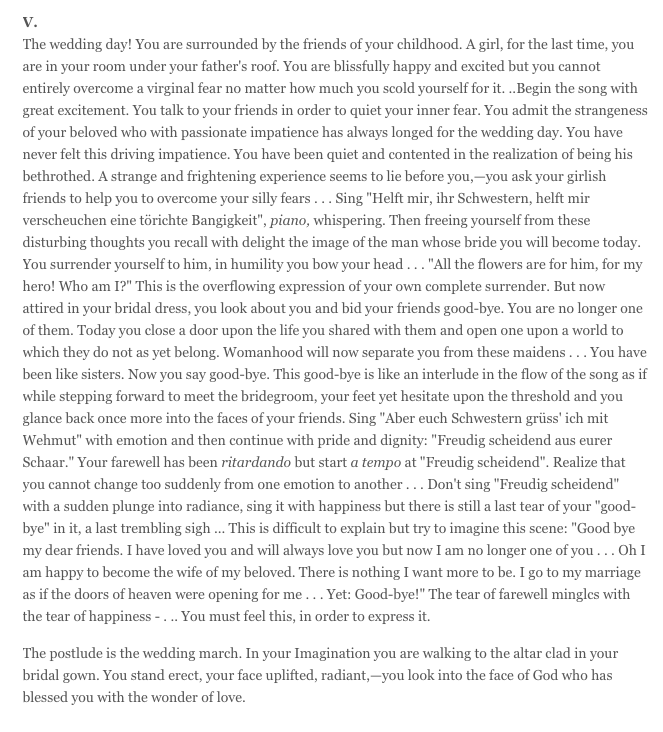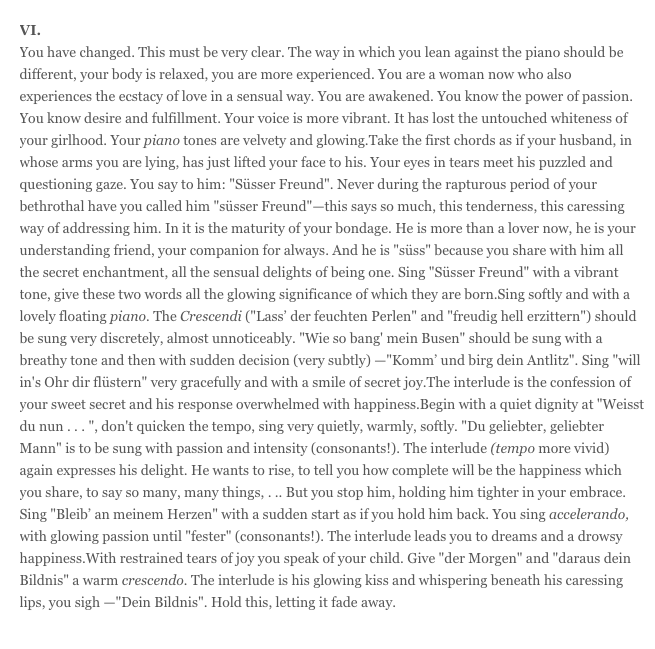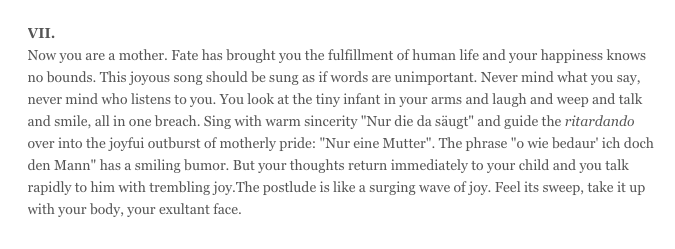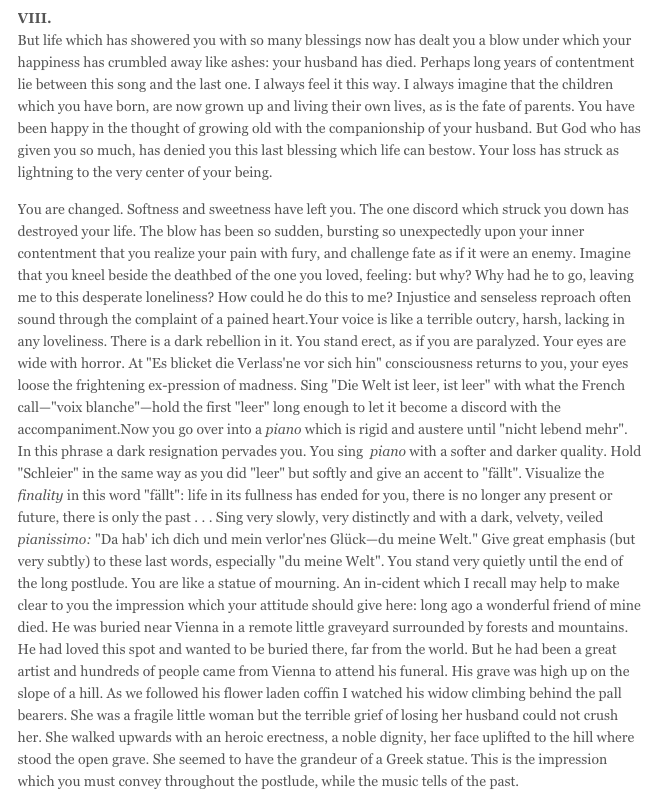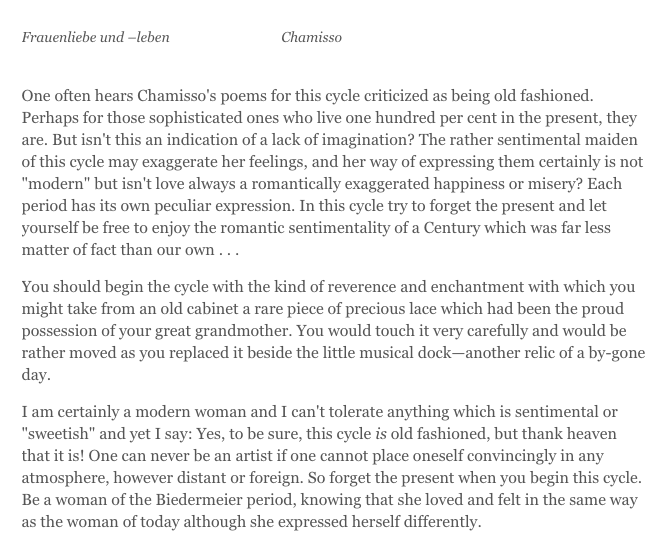You can hear Lehmann sing Schumann’s Frauenliebe und -leben on different recordings as well as master class recordings (when they exist) on the original Apple iBook Volume 4 or in our adaptation for this website. Below, I’ve gathered together Lehmann’s major recordings, both in studios and live. Since they cover many years, one can hear how Lehmann’s voice sounded throughout the years in the same songs. It’s interesting to note the various points at which she breaks a phrase for a “catch” breath. You’ll hear that her choices (or need) changed over the years. After these recordings you can read Lehmann’s advice to a singer about Frauenliebe und -leben; these are not the same words found in her 1972 book Eighteen Song Cycles. The full account found in that book is certainly important reading for anyone trying to understand this cycle and may be found following the two typewritten pages.
The first example is marred by an “instrumental ensemble” (really a trio: violin, cello, piano) that the Odeon producers thought necessary to help sell the recordings. This song cycle was recorded on 10 November 1928 in Berlin; matrix numbers Be 7601/8; catalog numbers Odeon O-4806/9. You’ll hear that someone has “orchestrated” the music making choices that may have nothing to do with Schumann’s own composition. Robert Cowan writes (in the liner notes for the Pearl CD GEMM CD 9119), “…[we] regret the absence of a sensitive solo accompaniment for Lotte Lehmann’s otherwise superb account of Frauenliebe und -leben, although strings and piano tend to recall the rich-textured world of Schumann’s great Piano Quintet, and the playing itself is actually quite endearing. As to Lehmann herself, she employs a glorious soprano in pursuit of countless moods and emotions – from girlish exuberance and rapture to knowing regret. It’s a sensual, earnest and eager rendition of the cycle, rather less effortful and breathless than her later (wartime) [1941] recording with Bruno Walter at the piano, but equally musical.” In my interview with Lehmann in 1972 she referred to these salon orchestrations as “dreadful” and reminded me that she had nothing to say in the matter.
The second set of recordings is from 1941 with Bruno Walter, piano. These are from Columbia 17362/17365; catalog numbers: CO 31508/31515. You’ll hear that Bruno Walter often “spreads” or rolls the chords as was done in the late 1800s and early 1900s. He’s not as flexible as Lehmann’s usual pianist of the time, Paul Ulanowsky, who is heard in a “live” recording (probably from a radio broadcast) from New York’s Town Hall on 20 February 1944. I provide two sets of recordings on this “live” version. The first is a rather noisy one taken from the acetates that were made from the radio broadcast. Many years later, the well-respected transfer specialist Lani Spahr refined the sound tremendously. There’s always some loss of the singer’s original sound, so you may choose to listen to one or the other depending on your preference.
************************
***********************
********************
***************
*********************
**********************
************************
